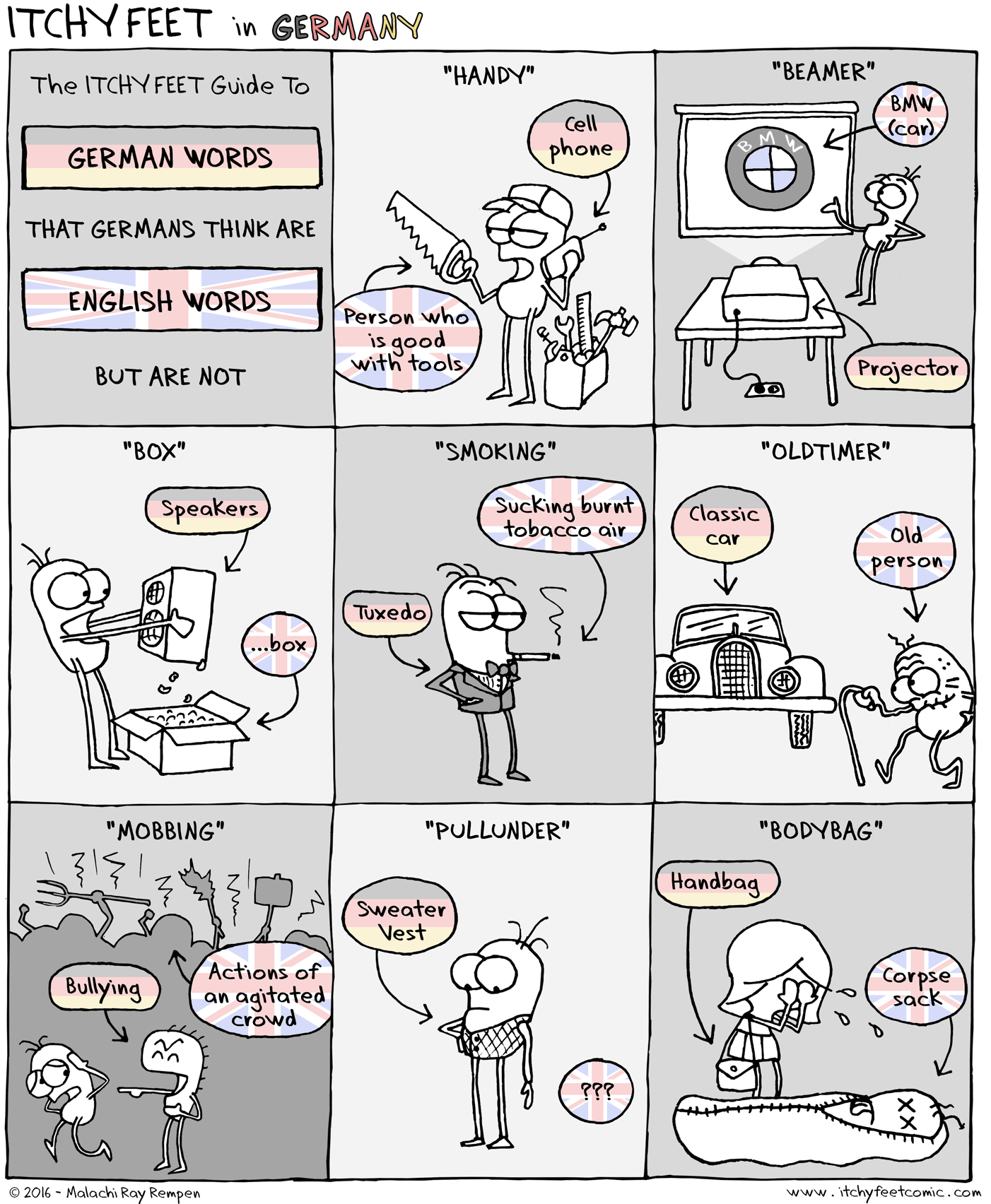False False Friends in German Posted by Malachi Rempen on Oct 9, 2017 in Archived Posts
Germans have a habit of stealing English slang and using it incorrectly. Is that a False Friend? Or something else entirely?
Germans are funny.
They are proud of their language and culture, but also proud of their ability to speak other languages – mostly English, and to a lesser but still significant degree, French. Quite the opposite to the French, Germans are perfectly willing to let their language be influenced by the rise of American English. They’ll often pepper a casual conversation with Englishisms like “no-go” or “easygoing” or, of course, “cool.”
But their imported slang doesn’t always hit the target, hence the above comic and the unusual list of False Friends.
Usually, a False Friend is a word that sounds the same as a word in another language, but actually means something different, often completely different or even the opposite. A classic example is in Spanish, where embarazada sure sounds a lot like “embarrassed,” but actually means “pregnant.” You can imagine the hijinks from there. And you could be forgiven for making that mistake – English and Spanish both share a large number of words with romance roots, so many words are the truest of friends.
But this list of False Friends is different. They’re backward. Instead of German words that sound like English words but have different meanings (bekommen is an example – it sounds like “to become,” but actually means “to receive”), they’re words that are stolen from English and then used incorrectly. They’re not False Friends…they’re True Enemies.
What about you? What incorrect imports does your language feature? What False Friends? What True Enemies?

Build vocabulary, practice pronunciation, and more with Transparent Language Online. Available anytime, anywhere, on any device.





Comments:
Chuck Smith:
I especially love American “Foosball” and German “Kicker”!